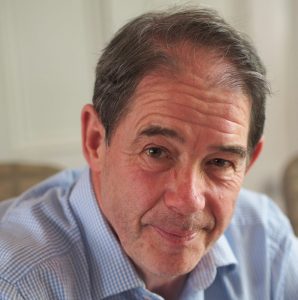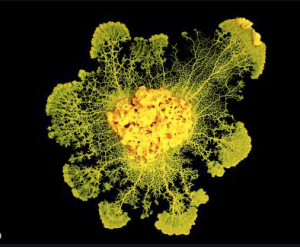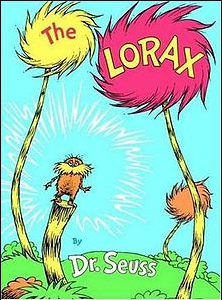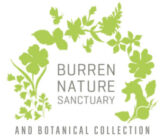
Jonathan is an environmental activist and has been fighting for nature since the 1970s. He was a prominent leader of the Green Party, formerly the Ecology Party in the UK, and was the inspirational director of Friends of the Earth until 1990. In 1996, he founded Forum for the Future, advising leading organizations in both the public and private sector on sustainability issues. He's passionate about promoting solutions to today's multiple problems and working with young people, which is the one thing above all else that keeps him hopeful today.
How did you become an advocate for nature?
I was lucky, I spent quite a bit of time living in New Zealand when I was 18 to 20 and one of the things I did there was to plant more than 200,000 trees . There was a particularly special bit of land there on three acres called The Cathedral. This little patch of land was just quite amazing, it was the only patch that was proper native bush. I spent so many hours planting trees on this place and then always taking refuge in The Cathedral when the rain became too difficult to deal with or it was too cold. You have to plant trees in the winter, obviously. It was amazing. I spent as much time on the land then as I've ever spent throughout the rest of my life. So that was really what got me into it.
I joined the Green Party in 1974 so a long time ago! The Ecology Party, now the Green Party was the only political party in those days that seemed to have any direct connection with the land, with nature, with biodiversity, with ecosystems. None of the rest of the political parties spoke about any of that stuff at all. So for me, it was really critical to join a political party that wanted to put nature at the heart of our politics. If you don’t do that we end up in the kind of mess we're in today. Whether you're talking about Covid 19, destruction of ecosystems or galloping climate change, whatever it is, you just end up in a mess. This whole area about the economy, nature and personal responsibility has been essentially my life's work.
Do you have a favourite plant or animal?

I was a trustee of the Worldwide Fund for Nature WWF for 12 years. WWF is focused on the charismatic megafauna, the sort of big, brown eyed creatures, pandas and bears and all the wonderful things that people love, tigers and so on. I became quite hostile to the preferencing of charismatic megafauna. Everything was about them and nature isn't really like that. You know, tigers are phenomenally beautiful, but they're just one species in a massively complex ecosystem. So at about that time my eyes turned towards something called the Slime Mould, which is my favourite species! I think these are quite astonishing creatures. There are hundreds and hundreds of different species of Slime Mould all over the world. We do have Slime Moulds here in the UK, but the ones I got to know about were in the rainforest when Friends of the Earth was doing its campaigning. We learned the critical importance of Slime Moulds to the whole fragile way in which the rainforest works. They are quite special. They are little single celled organisms and during the Autumn they come alive. They move into the active phase and they form these great multi-celled bits of glob. If you see them on the forest floor they are not beautiful or anything, but they are critical to the well-being of the forests. They eat a lot of the stuff, the detritus that's left over. And then even more amazingly, once they've eaten everything they have some astonishing mechanism that turns them from these single celled fungal organisms into spores. These spores are blown everywhere else in the woodland. They're not blown very far. Centimetres or inches, but that's far enough to get going next time round when they have to eat things again. So the more I learn about slime mould, the more I love it. So that's probably a bit counter to people's normal perception, but they do it for me!
Do you feel spiritually connected with nature?
I've always felt some kind of spiritual connection. I think maybe it goes back to that little clump of native bush, The Cathedral. But it's always been clear to me this is not just a scientific, materialistic set of relationships between us and the natural world. There's always been something about connectivity with everything else, with all living creatures on this planet. And I've felt that really from the very first. It was always a bit astonishing to me, particularly when I was in the Green Party, I discovered that for most people, that was considered to be pretty weird, wacky. Basically, environmentalism was about science, politics and all the rest of it and doing all these really fantastic campaigning things that don't mention the human spirit, don't talk about our spiritual connectivity with the natural world because that's just going to put a question mark over our wonderful scientific reputation. But I didn't really get that.
A lot of my early inspirations were people who were very close to understanding the importance of indigenous people. For instance, to ask, ‘is your connection with nature spiritual or not’, would be ridiculous because on what other basis would you be connecting with nature were it not through that deep spiritual sense of connectivity?
I was very involved in the Friends of the Earth rainforest campaigns right through to the end of the 90s and spent quite a bit of time in Malaysia and Brazil. I worked with Anita Roddick, for instance, in the Body Shop. Survival International, has been a ‘go to’ organization for me for many, many decades. It is one of the most important NGOs in this world protecting the interests of indigenous people.
A spiritual connection with nature has been a really important part of my work as an activist. When things have got tough over the last 45 years I've often used my love of nature as a way of putting things to rights in my own mind and carrying out some short term temporary healing. So a spiritual connection with nature has featured large in my life and it still does.
Are there any positive actions you can suggest for people that they can do to support nature?
I just think this stuff comes more easily to people if they have the privilege of being close to a place where nature is alive and well. And I'm very mindful of this at the moment because the contrast between people who are able to enjoy a garden or access to a park in this current crisis and those who aren't, who are sort of locked up basically in flats where there's nothing much that you can do to connect with nature apart from look out the window and see this beautiful blue sky all around you. I think that those of us who are lucky enough to get access to nature just need to understand the privilege that that is and be properly respectful of it and do what we can in those spaces to ensure that nature can thrive alongside our use of it. So for a lot of people, that's a way, the way in which you might garden so that you are respecting that kind of co-creation story with nature rather than trying to impose this astonishing model of top-down control over everything. For other people it may just very simply be when one is out and about walking, just to look, to understand, to observe much more closely, sometimes to be silent, to think about the beauty of nature around us.
I do think one of the most astonishing things going on in the Covid 19 crisis is the number of people now who are commenting on birdsong. I mean, it's just unbelievable. I cannot imagine in any other crisis in human history where birdsong would suddenly be featuring so prominently. Just give yourself space to be in nature and enjoy it for what it is.

Do you have any books you'd like to recommend to people?
Firstly, The Lorax by Dr. Seuss. Now, for most people in the later stages of life, you've probably forgotten how amazing Dr. Seuss is. The Lorax is just this priceless little gem of a book showing both sides of human nature: the insane, greed driven industrialization of everything in the natural world and then this notion that there is something in us which recognizes how utterly forlorn and stupid this is and promises that we can actually get it sorted out if we do things differently. So I've loved that book forever. I can’t remember a time when I didn't have a quick read of The Lorax just to cheer myself up. The other book, which is very close to my heart is The Peregrine by J.A Baker. More recently it's been read by David Attenborough on Audible. It's the most powerful, amazing book just about the life of the Peregrine Falcon. You have to take it slowly and you have to be in the right space to enjoy it.
If you had a magic wand, what would be the one thing you do for the planet right now?
Well, the technical answer is that I would make sure that every government in the world introduced a carbon price. We have a massive crisis, as everybody knows, in terms of the climate emergency. And we're trying to deal with it in a market based economy. In a market based economy, it's about prices. It’s about how much people are prepared to pay for things. So until we make people pay for the emissions of these greenhouse gases that are causing the climate emergency, we're never going to get an intelligent, viable economy. So we have to have an economic system that allows governments to impose a price on carbon. Every tonne of CO2 and other greenhouse gases that are emitted would carry a certain price. And that money could then be used to fund the restoration of nature to help deal with a lot of today's social problems. So there are many, many benefits that would come from that. That's a big one. But it will come. I think I read about that first in the Green Party manifesto in 1979. But it will come.
So a little bit more realistically, I guess if I could really wave that magic wand one thing that would matter most to me would be that every single child in the world could be brought up in such a way that his or her contact with nature could be sustained, not just when they're at that age where the connection with the natural world is so natural that there's no question mark in their minds as to why they're doing it, but that it's sustained throughout the primary school years and then through into secondary schools.
I do quite a lot of work with the educational system. I am the president of something called the Conservation Volunteers, which is trying to get people in general, including young people, into contact with nature. The story about this is so simple- the more time any person, at any age spends in nature, the greater the physical and mental well-being. The fact that we've never had a single politician in this country who has really understood that, is just such a devastating indictment of how limited the thinking is, despite the fact that the scientific evidence is just astonishing!
